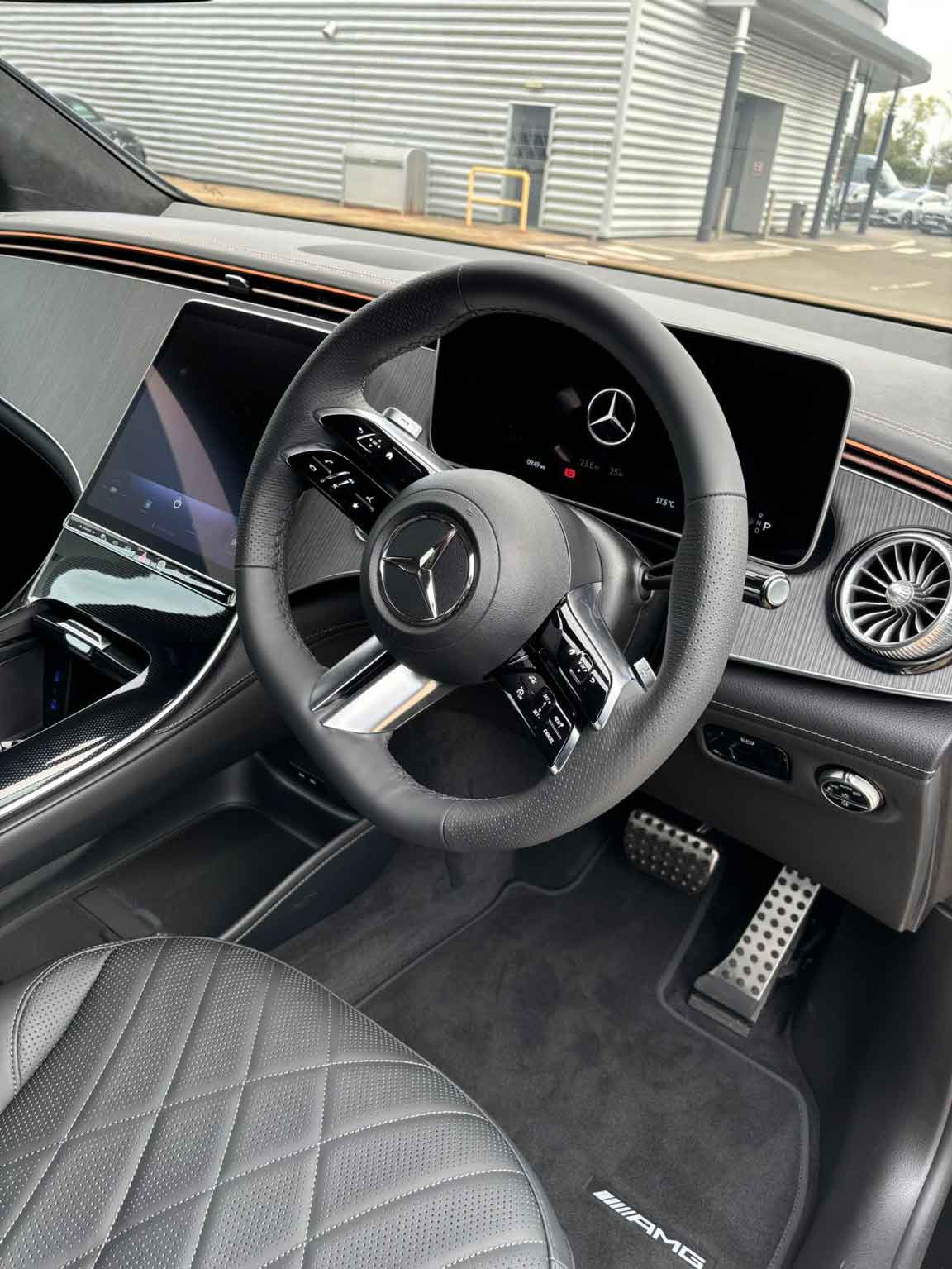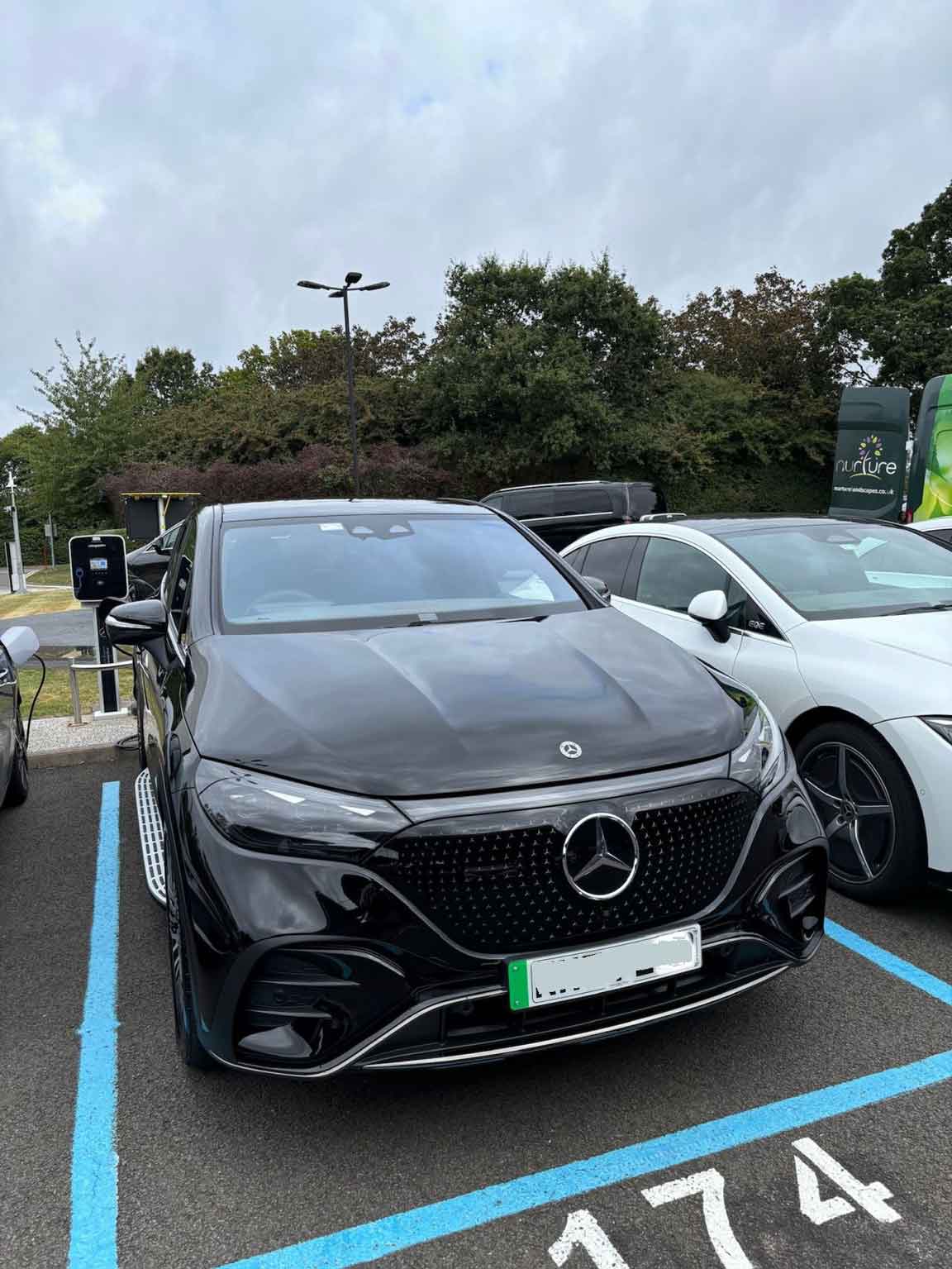
Mon-Fri 9am-5pm
Talk to our friendly electric car leasing experts now: 01942 910 001This website uses cookies to ensure you get the best experience. Learn more
Your Definitive Guide to the Mercedes EQE Electric Car Lease

The Mercedes EQE Electric Car Lease - Your Definitive Guide
Moving your company car fleet into electric is pretty much the accepted route forwards as we move towards an all-electric UK fleet by 2035 (or 2030 if Labour do make the change). While there will be high-mileage drivers, or those without off-road charging, who will need to consider the logistics and practicality, the momentum is very much in favour of a BEV.
However, should the first EV you lease be new or used? This is very much a subjective decision for the company (and the directors) with an array of metrics to take into account before a procurement decision is made.
You may have noted today’s (16 September) Telegraph publication which is documenting “exceptional depreciation” on new EVs. Indeed, the article refers to the example of a car losing over 65% of its value over 2 years, compared to the 40% which one would expect.
There is also a suggestion of prices increasing for consumers in order to compensate for the rapid depreciation. However, is this painting the full picture? Mass-adoption is only around 4 years in for new cars, with both the personal and business markets going through a litany of constraints and issues For used-EVs, they are at least 2 to 3 years behind this, which means we are yet to go through the same learning lessons of the new car industry.
Add to this that many manufacturers charged premiums for their new EVs in a post-COVID world, coupled with the less price sensitive business market enjoying the absence of company car tax. Of course, this cannot be said for consumer and retail customers, which is why the premiums being charged were of little benefit to many individuals.
But with manufacturers creating more affordable propositions, and lowering their price metrics, along with more used-EV leasing schemes, there is very much a changing landscape to redress these purported issues.
.jpg)
New EVs, or used EVs, will now be catching the eyes of many publishing businesses who operate as a limited company (LTD). Amidst rumours of a “tough October budget” these businesses will be looking to spend money more wisely and this will almost certainly include their vehicle decisions.
Historically, HMRC have made running a petrol or diesel car more punitive for directors and employees in the media world. Emissions, being the CO2 from the tailpipe, is how the UK’s tax authority handle the income tax repercussions on having a company car.
To be clear, this is not a free benefit. Before the onset of pure electric, many media company senior management would be utilising a company car allowance or instead pursue commercial vehicles, like pickups and 2-seater Land Rover / Range Rover commercial products. However, because an EV emits 0 g/km for CO2, accounts and financial directors working with publishing institutions are now re-educating the decision makers on how best to procure their vehicles moving forwards. This is without taking into consideration the improved environmental impact and greener nature of this transport.
For a contract hire (leasing) arrangement, when you utilise an electric car you can reclaim 100% of the rentals against your Corporation Tax. If you are a VAT registered business, then up to 50% of the VAT on the finance and 100% of the VAT on the maintenance element can be reclaimed.
Since electricity is not classed as fuel, if you install a charge point at your business premises the cost of the charge point / installation is wholly tax deductive (capital allowances) and any electricity used to fuel your vehicles does not create a taxable predicament (private fuel).
When you compare the company car tax on a typical petrol or diesel vehicle vs an electric one, the hundreds of pounds per month of savings are somewhat palpable. There is no argument that moving your business across to an EV is the sage financial decision.
The Perfect New (or Used) EV for Publishing and Media Company?
In the luxury car market, where many directors and senior management find their vehicles, the shift back to a company car programme has been made possible through electrification. The new Mercedes EQE SUV is one such option which is catching the eye of many media executives.
The “electrifying clarity” is a spacious 5-seat vehicle which embodies the luxury and dynamics which you would expect from the German engineers. Inside, the SUV will adopt the digital cockpits and prestige finish which is characterising the EQ range. In terms of options choose between:
- AMG Line Edition - the includes 21” alloys, AMG body styling and side skirts, LED headlamps, keyless-go, easy-powered tailgate, dark tinted glass, mirror package, memory package, ambient lighting plus, 12.3” screen, parking package (with reversing camera), smartphone integration, wireless charging, AIRMATIC and the ServiceCare (6 years of services included);

- AMG Line Night Edition Premium - this adds illuminated running board, panoramic sunroof, DIGITAL LIGHT, driver assistance package plus, Burmester surround system, augmented reality for navigation, MBUX hyperscreen, traffic sign recognition, and the night package; and
- AMG Line Night Edition Premium Plus - this adds 22” alloys, dashcam, HUD and additional interior trim options.
In terms of colours, you can choose between Obsidian Black, High-Tech silver, Emerald Green, Selenite Grey, Sodalite Blue and Alpine Grey. The Towing Package can add the electronically folding towbar. Configure your EQE SUV directly on the Mercedes website.
How does the EQE 4x4 perform - is it a good EV?
As per the below you can choose between the following options:
- EQE 350 - the 90.6 kWh lithium-ion battery will offer 0 – 62 times of 6.6 seconds, 130 mph top speeds and 215 kW (or 288hp). This model is a AWD option. Expect a combined winter range of 230 miles with warmer weather allowing for 305 miles - 270 miles combined. On charging, the 22 kW AC max will allow 5 hour 0 – 100% charging times with the 173 kW DC maximum allowing 28 minute 10 – 80% times. This has a cargo volume of 520L and vehicle fuel equivalent of 121 mpg. This model can tow 1800 kg braked and 750 kg unbraked. A heat pump is standard. No bidirectional charging has been confirmed;
- EQE 350+ - the 96 kWh lithium-ion battery will offer 0 – 62 times of 6.9 seconds, 130 mph top speeds and 215 kW (or 288hp). This model is a AWD option. Expect a combined winter range of 250 miles with warmer weather allowing for 335 miles - 295 miles combined. On charging, the 22 kW AC max will allow 5 hour and 15 mins 0 – 100% charging times with the 173 kW DC maximum allowing 30 minute 10 – 80% times. This has a cargo volume of 520L and vehicle fuel equivalent of 124 mpg. This model can tow 750 kg braked and 750 kg unbraked. A heat pump is standard. No bidirectional charging has been confirmed; and
- EQE 500 - the 96 kWh lithium-ion battery will offer 0 – 62 times of 4.9 seconds, 130 mph top speeds and 300 kW (or 402hp). This model is a AWD option. Expect a combined winter range of 250 miles with warmer weather allowing for 335 miles - 295 miles combined. On charging, the 22 kW AC max will allow 5 hour and 15 mins 0 – 100% charging times with the 173 kW DC maximum allowing 30 minute 10 – 80% times. This has a cargo volume of 520L and vehicle fuel equivalent of 120 mpg. This model can tow 1800 kg braked and 750 kg unbraked. A heat pump is standard. No bidirectional charging has been confirmed.
In terms of the car shown, the Mercedes EQE Estate 350 4M 215kW AMG Line Night Ed Prem 91kWh 5dr Auto, this is based on the following configuration:

- Metallic - Obsidian black
- Leather - Black/Space grey
- 21" AMG multi spoke Bi-colour alloy wheels
For the best EQE deals head to our special offer page or build your ideal car on the manufacturer website and send this to our expert e-car lease team.
e-car lease work alongside these select finance companies:





e-car lease have a partnership and affiliation with:



Register & get new deals weekly
 Exclusive offers
Exclusive offers
 Electric-only deals
Electric-only deals
 Never miss out
Never miss out

Talk to one of our experts
01942 910 001 Email usLeasing


© Copyright 2025 e-car lease. All rights reserved. e-car lease is a trading name of CarLease (UK) Ltd, e-car lease is a credit broker and not a lender. We are authorised and regulated by the Financial Conduct Authority. Registered No: 706617. BVRLA Membership No. 1471. Registered in England & Wales with Company Number: 09312506 | Data Protection No: ZA088399 | VAT No: 200422089 | Registered Office: Kings Business Centre, Warrington Road, Leigh, Greater Manchester, WN7 3XG
Made by morphsites®












